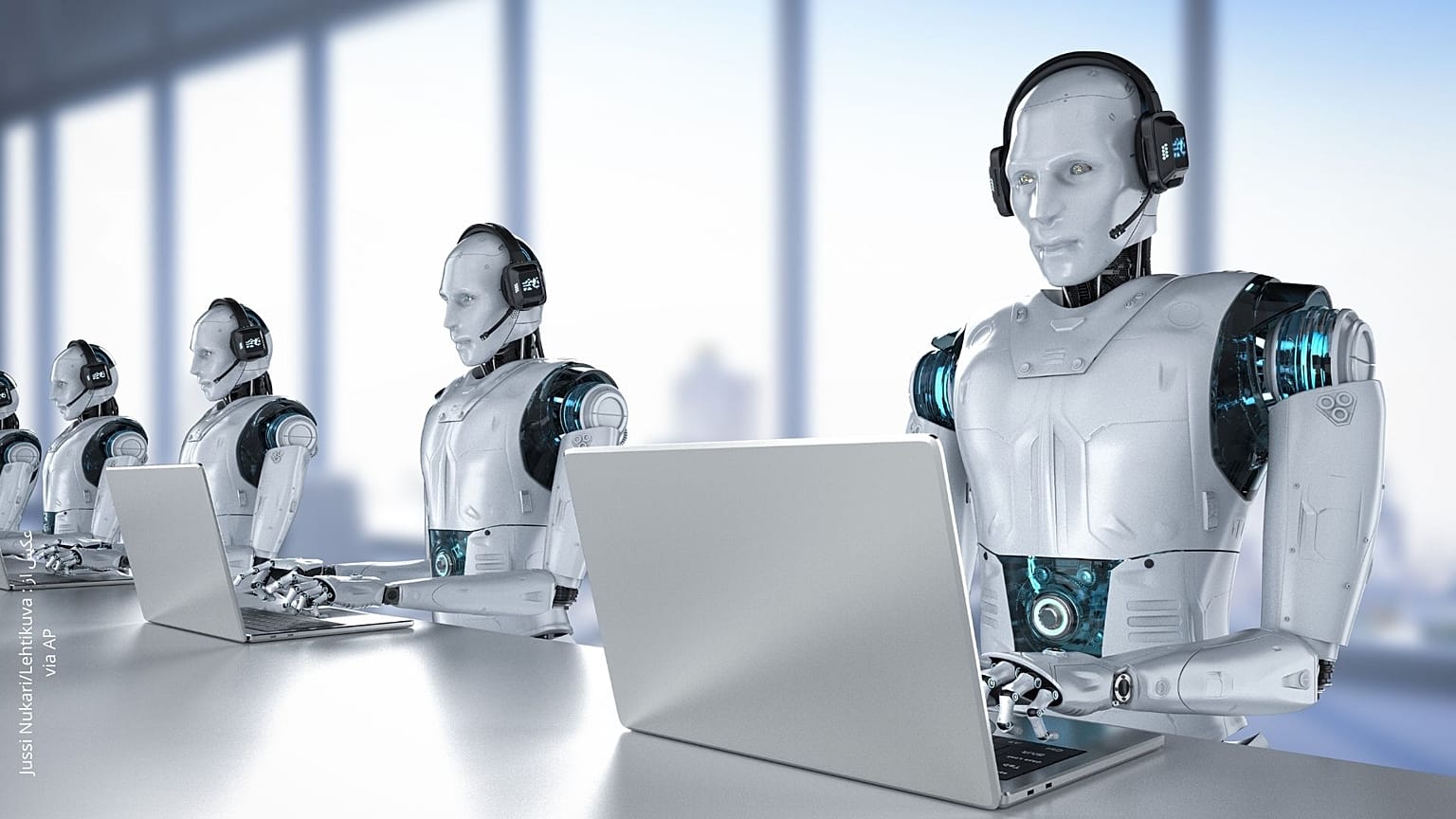By Aoibhinn Mc Bride
 ADVERTISEMENT
ADVERTISEMENT
 ADVERTISEMENT
ADVERTISEMENT
While much of the conversation to date surrounding ChatGPT, the groundbreaking chatbot created by OpenAI, revolves around whether AI will replace humans and take our jobs, these advances in technology will also have a positive effect on the job market in the future.
That’s according to recent data released by the World Economic Forum (WEF), which predicts the market outlook for the next five years (2023 to 2027) will not only be made more buoyant by tech, but boosted by its ability to streamline processes.
AI as co-worker
As part of its annual Future of Work Jobs Report 2023, the WEF has detailed the areas expected to grow.
Unsurprisingly, AI and machine learning (ML) specialists top the list, followed by sustainability specialists, business intelligence analysts, information security analysts and fintech engineers.
Data analysts and scientists, robotics engineers, big data specialists and digital transformation specialists also make the top 10.
While many of these roles already exist, their emerging prevalence in the next five years indicates how AI, automation and a reliance on data will continue to transform the way organisations operate.
More than 75 per cent of companies plan on adopting additional cloud computing, cybersecurity and AI technologies within this time frame to increase digitisation.
The report also found that environment, social and governance (ESG) policies will become more important within organisations and will influence how businesses are run, what kind of investments are made and if the technology that is being used is as green as it could be.
Similarly, agricultural technologies will surge as a response to climate change.
The downside to this upswing? For the 69 million jobs that are expected to be created in this five year period, 89 million jobs are expected to be lost, particularly in the areas of data entry, retail banking, accounting, bookkeeping and door-to-door sales.
This equates to a net loss of 14 million jobs - or 2 per cent of jobs that are currently available.
The silver lining
So, how can workers safeguard themselves against the robo-pocalypse and offset displacement?
While technical skills will always be an important element in securing and keeping your job, soft skills rein supreme within the workplace. They’re also what set humans apart from AI’s current capabilities.
These include analytical thinking, creative thinking, leadership and social influence, resilience, flexibility and agility, curiosity and lifelong learning.
This is echoed by recent data compiled by Deloitte which identified that soft skill-intensive jobs will account for almost two-thirds of all jobs by 2030 and separate research which found that teamwork and collaboration, communication and problem solving and critical thinking are the three most important soft skills in the workplace.
Current job openings also allude to soft skills being championed by employers across several different industries, as seen on Euronews.jobs.
For example, this Principal Software Engineer – Backend Services role at Improbable lists being able to work within a team, leading a team and advising team members as some of its main duties. Working remotely you will also be expected to mentor team members in their day-to-day work, while also spearheading and overseeing code implementation.
In Berlin, fintech Trade Republic is recruiting a (Senior) SAP FICO Consultant (In-House) to work within its finance department. Strong communication skills are among the job requirements, alongside the ability to convey complex topics succinctly.
It is also hiring a Senior Risk Model Development Expert to work alongside the financial risk team and enhance the company’s risk data framework. While advanced programming skills (e.g. Python, R, C++, Java) and experience with databases (e.g. SQL) is a plus, this role also requires several “personal” skills, including the ability to be a team player, analytical thinking skills and the drive to continuously adapt in an ever-changing, high-growth organisation.
Also in Berlin, Zalando’s purchase risk management team is seeking a Machine Learning Engineer to join a dynamic team of engineers and applied scientists to safeguard its checkout process.
Applicants will need to be proficient in Python and have hands-on experience as a machine learning engineer, developing deep learning models in cloud environments. The ideal candidate will also need to have excellent communication skills to translate complex analytical and engineering decisions to a broader non-technical audience.
And in Düsseldorf, Mazars GmbH & Co. KG reiterates this line of thinking and stipulates that analytical thinking and being able to communicate in both English and German is essential to secure its Senior Frontend Developer opening.






